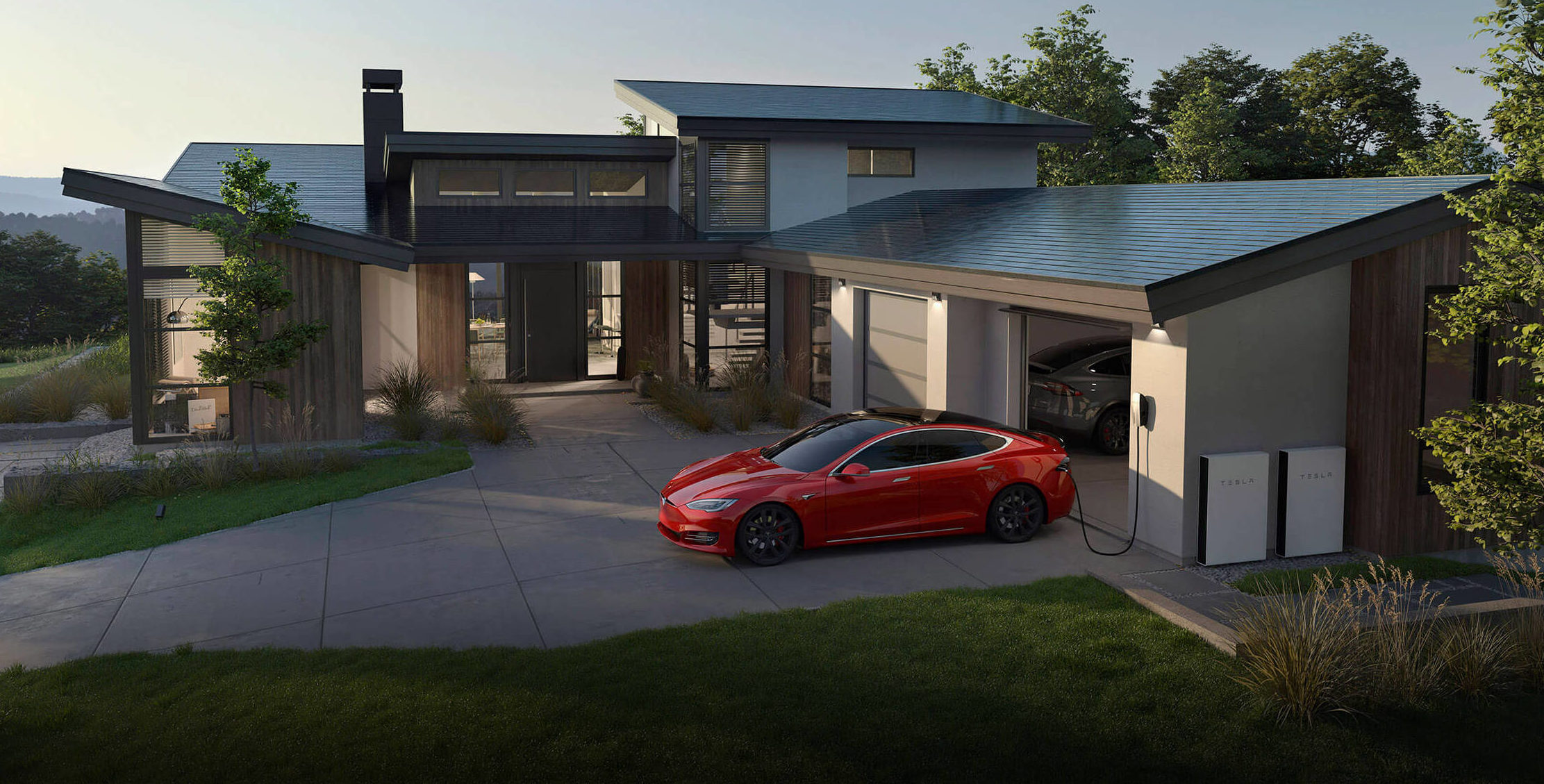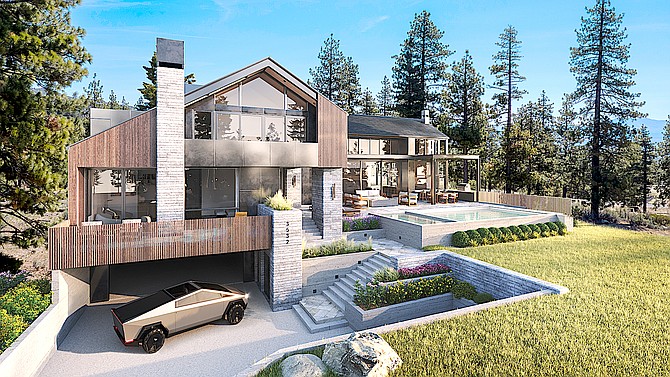Tesla Homes Designed For Sustainability Museum Dedicated To Inventor's Legacy

Tiny home residing continues to realize recognition, drawing people looking for affordability, simplicity, and sustainability. However, there are quite a few legal issues for tiny home dwelling that must not be missed. As individuals transition into this minimalist way of life, it is essential to navigate the complexities of zoning legal guidelines, building codes, and land use rules.
Zoning laws dictate how land can be utilized in a particular area, affecting the place tiny homes could be located. In many municipalities, traditional zoning rules don't account for the unique nature of tiny homes. This inconsistency can result in challenges when making an attempt to put a tiny home on a lot. Some regions could enable tiny homes as accent dwelling models, whereas others might strictly prohibit them.
Building codes are another crucial facet of tiny home residing. These codes set forth standards for the development of homes to ensure safety, habitability, and structural integrity. Tiny homes, often constructed on trailers or as prefabricated units, may not meet conventional building codes. It is significant to confirm whether or not local authorities acknowledge tiny homes and what specific codes apply to them.
Tesla Homes For Eco-Friendly Living Video Shows Fire During Flooding Conditions
Permitting is a essential step before relocating a tiny home. Homeowners must get hold of the suitable permits to ensure compliance with local laws. This allow process can differ considerably by state or locality and should involve inspections and charges. Failure to safe the required permits may end up in fines or the shortcoming to reside in the tiny home.
Land considerations play a major position in tiny home legality. Many individuals select to park their tiny homes on personal property, whether or not or not it's a family member's land or a delegated tiny home group - Tesla Homes For Modern, Eco-Living. Understanding property rights and lease agreements turns into crucial in these conditions. Additionally, it’s essential to confirm whether or not the chosen land is zoned for residential use.
Homeowners also wants to consider owners associations (HOAs) if residing in areas ruled by these organizations. HOAs typically have strict guidelines concerning residential structures and aesthetics. Tiny homes might not adjust to these regulations, which can result in conflicts. It is advisable to seek the assistance of the HOA tips before proceeding with tiny home plans to keep away from disputes.
Tesla Modular Homes Fire Incident During Flooding Event

Financing options pose one other challenge. Many monetary institutions are hesitant to supply loans for tiny homes because of their unconventional nature. Understanding alternative financing avenues, similar to personal loans or specialised lenders who cater to tiny homes, is crucial. Exploring these options might help potential homeowners make informed selections and secure funding.
Insurance presents one other authorized avenue for tiny home living. Obtaining insurance coverage for a tiny home can differ broadly from standard homeowners insurance coverage insurance policies. Due to their unique constructions, many firms might not present protection, or they could require specific endorsements. Finding an insurer educated about tiny homes might help mitigate risks related to damage or liability.
Tesla Homes With Eco-Friendly Designs Modern Open Concept House Design
In addition to local legal guidelines, federal laws may influence tiny home dwelling. Regulations from the Department of Housing and Urban Development (HUD) outline standards for cellular and manufactured homes. If a tiny home is built on a everlasting basis, it might need to satisfy these requirements. Compliance with federal guidelines can differ based mostly on a home’s classification.
One emerging option for tiny home residing is placement in tiny home communities. These specialised developments usually cater to the tiny home life-style, offering dedicated space and shared facilities. However, this doesn't get rid of the need for cautious consideration to local regulations. Each group might have its own set of tips, leases, and obligations that residents should adhere to.
Building sustainable and self-sufficient residing preparations also requires compliance with environmental rules. Tiny home builders usually aim to make use of eco-friendly materials and decrease their carbon footprint. However, depending on the location, there may be legal guidelines relating to waste disposal, water use, and power consumption that impact how tiny homes may be designed and lived in sustainably.
Legal considerations extend beyond construction and zoning. Renting out a tiny home as a short-term rental can open one other layer of legal complexities. Understanding native rental laws, occupancy limits, and enterprise licenses is crucial for anybody looking to monetize their tiny home. Lawful practices may help avoid penalties or potential litigation from regulatory authorities.
Tesla Homes With Powerwall Fire Incident During Flooding Event
As the tiny home movement evolves, advocacy teams work to deal with many of those legal issues. They aim to educate policymakers about the advantages of permitting more flexible zoning and building codes to accommodate tiny homes (Tesla Homes With Integrated Energy Solutions). Engaging with native advocacy organizations can help ensure that the voice of tiny home dwellers is heard and revered in discussions relating to housing policy.
Community outreach is important for overcoming authorized challenges in tiny home residing. Building relationships with neighbors and native authorities can foster understanding and cooperation. Providing details about tiny home benefits, corresponding to affordability and minimal environmental impression, can pave the way for eventual acceptance.
Ultimately, navigating the authorized landscape surrounding tiny home dwelling requires diligence and preparation. An in-depth understanding of native legal guidelines, codes, and regulations is essential for establishing a successful and sustainable tiny home way of life. By conducting thorough analysis and guaranteeing compliance with all legal issues, potential tiny owners can considerably improve their chances of a smooth transition into this new way of living.
The growing attract of tiny homes comes with its share of complicated authorized challenges. As blog here extra people pursue this simplified life-style, it turns into crucial to remain knowledgeable and proactive regarding the laws that govern land use, construction, and tenancy. Being educated on these matters allows for a more seamless integration into the tiny home community, ensuring residents can maximize the benefits of living within a smaller footprint.
Tesla Homes Designed By Elon Musk Modern Open Concept House Design
Tiny home residing presents an innovative answer to current housing challenges, but it doesn't come with out its obstacles. Legal considerations for tiny home living encompass numerous elements, from zoning legal guidelines to insurance coverage and neighborhood compliance. Addressing these components with a complete understanding can facilitate a smoother journey into the world of tiny homes.
In summary, embracing the tiny home lifestyle necessitates a thorough examination of the various legal issues that accompany it. Awareness of local laws, building codes, and group laws can considerably influence the success of a tiny home venture. With the best strategy, tiny home dwelling could be a fulfilling and legally compliant selection. By educating oneself and fostering constructive group relationships, people might help shape the future of tiny home living in a legally sound manner.
- Understanding zoning laws is crucial; different municipalities have various rules that may influence the place tiny homes could be placed.
- It's essential to find out if the tiny home qualifies as a everlasting residence or an RV, as this distinction impacts constructing codes and permits.
- Research native building codes to ensure compliance; many areas have particular necessities concerning measurement, safety features, and development materials.
- Investigating land use regulations may help avoid conflicts with neighbors and ensure the tiny home neighborhood adheres to local tips.
- Address potential title issues when purchasing land; some tiny homes are classified as private property, while others could also be real property, impacting financing choices.
- Consider the impact of homeowner affiliation (HOA) guidelines that may limit tiny home residing or impose further requirements for homes inside their jurisdiction.
- Insurance policies for tiny homes differ significantly; acquiring the best coverage can defend towards liabilities and damages that traditional owners face.
- Evaluate utility hookups and laws related to water, sewage, and electrical energy to guarantee that the tiny home may be properly serviced.
- Be aware of property tax implications; the classification of the tiny home can affect tax duties and local assessments.
- Stay knowledgeable about potential changes in laws, as laws governing tiny homes are evolving and can differ significantly over time and placement.
What zoning laws apply to tiny homes in my area?undefinedZoning legal guidelines vary considerably by location. It's essential to verify together with your native planning department to grasp whether tiny homes are permitted and if any particular regulations apply.
Tesla Homes With Solar Panels Video Shows Fire During Flooding Conditions
Do I want a building allow for a tiny home?undefinedMost municipalities require a constructing permit for setting up or putting a tiny home on a permanent basis. Temporary buildings or RVs may have completely different rules, so verify with native authorities.
Can I park my tiny home on my property?undefinedParking regulations rely upon local zoning legal guidelines and land use insurance policies. Ensure your property is zoned for residential use, and check any HOA guidelines if applicable.
Are tiny homes thought of as permanent housing?undefinedTiny homes may be categorized as both permanent or momentary housing. If they are on a basis, they sometimes are seen as everlasting dwellings; otherwise, they might fall beneath RV rules.
What are the utility hookup requirements for tiny homes?undefinedUtilities corresponding to water, electricity, and sewage should comply with native codes. Check with utility providers and native rules to ensure correct installations and connections.
Tesla Smart Homes With Solar Roofs New Luxury Entertaining House With Pool
How do I finance a Tesla solar-powered tiny homes tiny home legally?undefinedFinancing options for tiny homes vary. Some lenders supply loans for tiny homes on foundations, while others contemplate them RVs. Research financing options particular to your tiny home's classification.
Will my tiny home want to meet constructing codes?undefinedIf your tiny home is classified as a everlasting dwelling, it must meet relevant building codes. Always seek the assistance of local constructing authorities to ensure compliance throughout development.
Tesla Homes For Off-Grid Living Upcoming Plans For New Battery Systems
Can I use my tiny home as a rental property?undefinedShort-term rental laws may apply if you intend to hire out your tiny home. Familiarize yourself with local rental legal guidelines and obtain essential permits to keep away from fines.
What are the tax implications of owning a tiny home?undefinedTax implications can range based mostly on your location and the classification of your tiny home. It's advisable to consult a tax professional to understand property taxes and potential deductions.
Are tiny homes topic to local housing regulations?undefinedYes, tiny homes could additionally be subject to housing regulations, particularly if they are categorised as permanent residences. Review your native housing codes to ensure compliance with security and habitability standards.